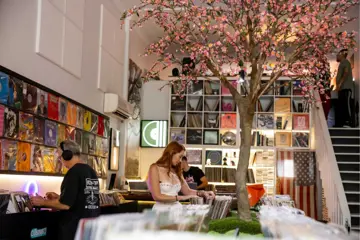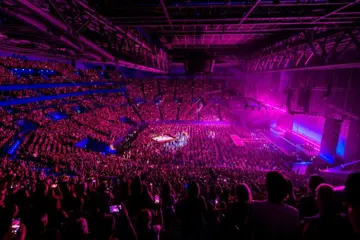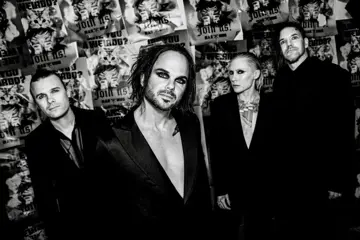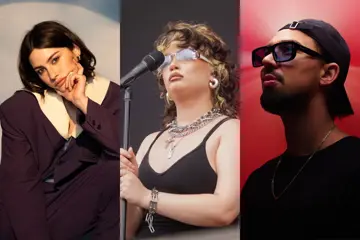It's no secret that life moves in cycles. Victories and challenges reveal themselves to us in waves that surface in lyrics, images and feelings we slowly interpret into meaning and (hopefully) action. When creating our second EP, I was inspired by the distinct personal experience of disentangling from a long-term relationship. I found the way my emotions surfaced over time created a specific wave of pain and healing that guided how I wrote the songs, which lent itself perfectly to becoming a concept record.
A concept record is a body of work that is based around a central concept. Kendrick Lamar, Pink Floyd, The Beatles and David Bowie are all notable for their contributions to this style of album. That being said, I would note almost all artists create work inspired directly or indirectly by the cycles of life they experience. So repetition of theme inevitably surfaces whether it is deliberate or not. Therefore, the ‘concept’ lens can often provide an informative and enriching perspective that can enhance the quality of the music by providing context.
'Nothing is Personal' is not strictly a concept album in the sense that the label is typically associated with a more surreal subject matter. However, the specificity of the content and the condensed period of time in which it was written allowed the EP to morph naturally in this direction. It begins with A Year and One Day (the length of time it took to end the relationship) and closes with 210 Days (the length of time it took to fall in love again). It is initially sparse, cold and electronic - reflecting the emptiness that follows heartbreak- and it closes warm, imperfect and acoustic- finally discovering peace within turmoil. Our intention was to take the listener on the journey to achieving closure and hopefully spark conversations around healing and intimacy through lyrical vulnerability.
With the ascension of apps like Spotify and Soundcloud, playlists and mixes have become an increasingly popular way for audiences to engage with music. While this is an excellent method to find new songs and join a broader conversation- it does negate the vitality of listening to albums to get to know an artist's perspective and authentically support their body of work. When you find a song you love, it's an invitation to discover a whole record of music written from the same headspace, same references and the same period of time. The depth of understanding a listener can garner from the album experience (in tracklist order) is impactful for both listener and artist- and perhaps isn't championed enough in the era of shuffle.
It’s hard to talk about the methods of consuming music without sounding preachy or like a self-aggrandising gatekeeper (doesn’t everyone secretly think THEIR music taste is the best and most enjoyable? Haven’t we all laboured under car rides with an aux-theif?). Too often, music, albums and artists are used to signify some kind of artistic or intellectual superiority for listeners to one-up each other, which ultimately stifles earnest conversation about music and our shared love for it. My only desire is to express my personal passion for ‘the album’ listening experience, and my only suggestion to any reader is this: If you have mostly been listening to playlists, and don’t typically listen to one artist for a long sitting, maybe deep dive into a few musicians, you love. Find a record (maybe even find a concept record), find out about the process/themes/contributions that went into making it, find out about the artwork, read the lyrics, and then give it a couple of start-to-finish spins with some good-quality speakers. And….if you still think playlists are superior and this sounded preachy, you can always find me on Instagram and link me a great playlist.
Grace Sanders' E.P is out tomorrow. You can pre-save it here.















